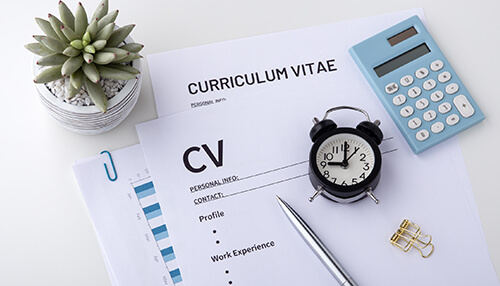Here she gives you the seven most important tips you should keep in mind when writing your CV and job application. Take help with the resume writing world.
1. Do not waste the “key qualification” opportunity
Creating a section where you set up the best you have to offer at the very top of your CV and call it either summary or essential qualifications is an opportunity you should not let go of. You will not get a better opportunity to sell yourself! You set up the qualifications that the job advertisement requires and that you hold there.
Ask yourself, “What is the most important thing I can do that they need?” You set up the answer first. Then what is the second most important, etc.? The first thing you set up is probably your degree with, for example, specialization. And if in doubt – this section should be adapted to each job you apply for.
2. Describe your work experience – there is a lot to gain here
It is not sufficient to only set up the employer, job title, and work period in this section. It would help if you wrote what you were responsible for, what the job consisted of, what working methods you used, and what you achieved. The more relevant the job you are going to describe, the more you can include – Part-time or summer job, which is just one of many jobs you have had, and which are not particularly relevant, you can set up under your heading. Then it is often enough to write the period, employer, and job title.
3. Describe more about your education
Under the heading education, it is not sufficient to settle for a sentence where you set up the time, place, and title of your degree. Here it would help if you embroidered more. Set up relevant subjects, the master’s thesis names, what you have specialized in, and any project assignments you have written. This part of the CV can also be adapted to the position you are applying for.
4. The essential thing should be first
It is wise to think when applying for a job that the essential thing should come first. This applies to your application but also your CV. Why? Yes, they can immediately look at you as a qualified candidate and ensure that they continue to read. When considering whether to have a section on education or work experience according to the essential qualifications, you should consider what is most relevant to the position.
5. Find a template that does not interfere
Find a good template adapted to the CV’s content and the job you are applying for. If you struggle to fill in a page on your CV, you have most likely not used the critical qualification section or elaborated enough. Do it first. If you struggle to fill the space, use a template with large margins.
More relevant for many is to find a template where you have space to write a little below each point in the CV. In such CVs, it is essential to use more of the document’s width and not let the column indicating the period steal too much space. Think that your CV should be easy to look at and comfortable to read.
Try a tab rather than a table. “Keep it simple but elegant”! Resume Writing Services. It can be converted to PDF and Word; here, you can customize the CV so that it mirrors you.
6. Not too short, not too long
Use the space to sell you and your expertise. Be precise and clear when you tell about yourself in your CV. Approximately the same length can also be the points during education and work experience that are most relevant.
Less relevant sections should be shorter. It would be strange to have a very detailed description of something irrelevant. That being said, you have probably learned something valuable that you can take with you further. Strain the most important, and keep it short. Avoid sentences that go over many lines.
7. Read proofreading
Typos are unnecessary. Read carefully and look for typos and grammatical errors. Have someone else go through and look for mistakes for you. Be sure to be consistent in your resume regarding punctuation, especially in lists. Beware of hyphenation errors. It is much more common for words to be connected in Norwegian than in English.
If there is a lot of error in the resume, the reader can hang on to it instead of the content. You will not be seen as sloppy or wrong in Norwegian. It can be good to be aware that we do not read proofs when we guide our members but rather spend time on content and relevance.



